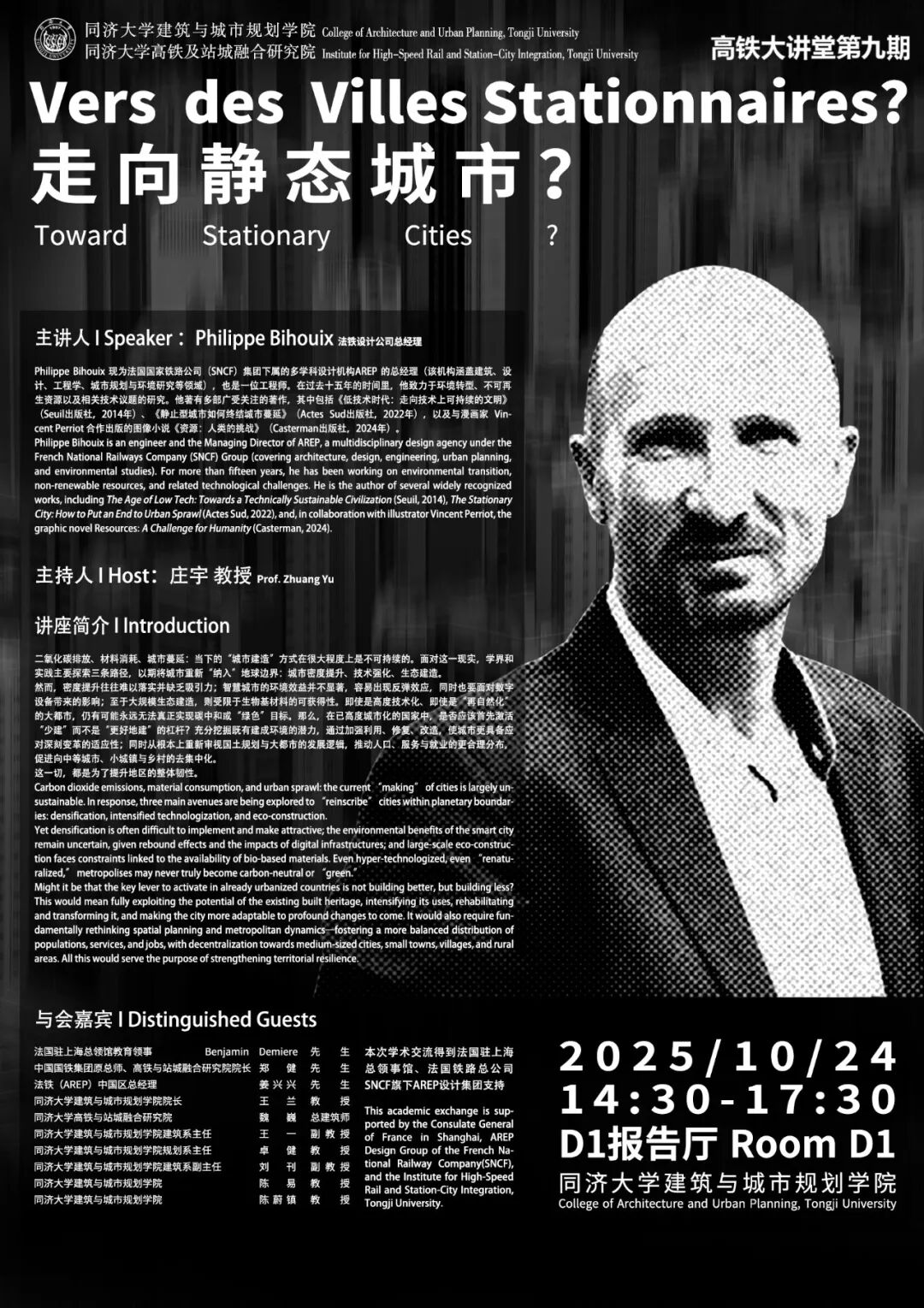

Toward Stationary Cities?
Philippe Bihouix
Speaker
Philippe Bihouix is an engineer and the Managing Director of AREP, a multidisciplinary design agency under the French National Railways Company (SNCF) Group (covering architecture, design, engineering, urban planning, and environmental studies). For more than fifteen years, he has been working on environmental transition, non-renewable resources, and related technological challenges. He is the author of several widely recognized works, including The Age of Low Tech: Towards a Technically Sustainable Civilization (Seuil, 2014), The Stationary City: How to Put an End to Urban Sprawl (Actes Sud, 2022), and, in collaboration with illustrator Vincent Perriot, the graphic novel Resources: A Challenge for Humanity (Casterman, 2024).
Introduction
Carbon dioxide emissions, material consumption, and urban sprawl: the current “making” of cities is largely unsustainable. In response, three main avenues are being explored to “reinscribe” cities within planetary boundaries: densification, intensified technologization, and eco-construction.Yet densification is often difficult to implement and make attractive; the environmental benefits of the smart city remain uncertain, given rebound effects and the impacts of digital infrastructures; and large-scale eco-construction faces constraints linked to the availability of bio-based materials. Even hyper-technologized, even “renaturalized,” metropolises may never truly become carbon-neutral or “green.”Might it be that the key lever to activate in already urbanized countries is not building better, but building less? This would mean fully exploiting the potential of the existing built heritage, intensifying its uses, rehabilitating and transforming it, and making the city more adaptable to profound changes to come. It would also require fundamentally rethinking spatial planning and metropolitan dynamics—fostering a more balanced distribution of populations, services, and jobs, with decentralization towards medium-sized cities, small towns, villages, and rural areas. All this would serve the purpose of strengthening territorial resilience.
Time
2025/10/24 14:30-17:30
Venue
Room D1, College of Architecture and Urban Planning, Tongji University
Host
Prof. Zhuang Yu丨College of Architecture and Urban Planning, Tongji University
Guests
Mr. Benjamin Demiere丨Education Consul, Consulate General of France in Shanghai
Mr. Zheng Jian丨Former Chief Engineer of China State Railway Group Co., Ltd.;Dean, Institute for High-Speed Rail and Station-City Integration, Tongji University
Mr. Jiang Xingxing丨General Manager, AREP Group China
Prof. Wang Lan丨Dean, College of Architecture and Urban Planning, Tongji University
Mr. Wei Wei丨Chief Architect, Institute for High-Speed Rail and Station-City Integration, Tongji University
Assoc. Prof. Wang Yi丨Director, Department of Architecture, College of Architecture and Urban Planning, Tongji University
Prof. Zhuo Jian, Director丨Department of Urban Planning, College of Architecture and Urban Planning, Tongji University
Assoc. Prof. Liu Kan丨Deputy Director, Department of Architecture, College of Architecture and Urban Planning, Tongji University
Prof. Chen Yi丨College of Architecture and Urban Planning, Tongji University
Prof. Chen Weizhen丨College of Architecture and Urban Planning, Tongji University
 ABOUT US
ABOUT US





